Finally! Winter break is here. Take some time to unwind from the last few weeks of classes to spend time with your loved ones and to rest. Having said that, if you find that you have some extra time that you are looking to fill, taking a few online courses and certifications is a great way to spend a moderate amount of time to gain lots of experience and skills. Taking online courses and certifications is a great way to help you approach new opportunities as a supplement to what you’re learning in your academic courses.
When looking for internships you might find that a certain skill or qualification is asked for that you may not have. Certifications and classes can go on your resume to address the needs that employers ask for.
Here is a refresher article explaining how you could list a course to address skills gained in a class.
I have looked through the internet to find some examples of internships I might want to apply to, with qualifications that I might not have. Let’s say I am interested in working within the field of computer vision.
Now for a quick Google search!

Quite a number of positions popped up! I started to look through them to see if I could find any common qualifications for all these positions. Let’s see if there are any similar skills that employers are looking for.
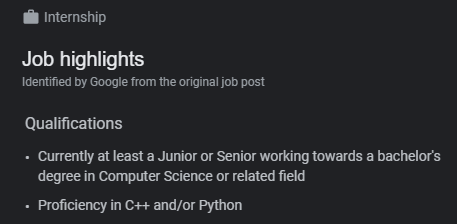
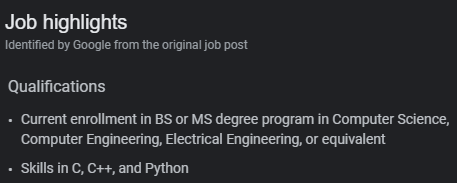
Hmmm… interesting I am starting to see Python and C++ show up as a requirement (let’s not worry about the Junior or Senior requirement since this is NOT a skill that I could learn. Just focus on what you can change at this point. If internships require a class year outside of your year, it would still not hurt you to build skills relevant to the position).

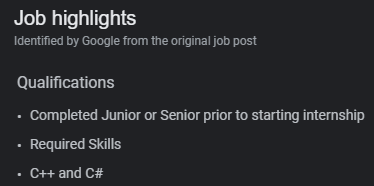
Wow! Python and C++ are everywhere! This is a sought-after skill.
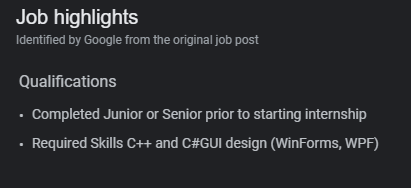
From my research, I have found that C++ is an extremely important skill to have for this type of internship, and that it might be a good idea to learn those skills.
Great! Now what?
Look at this resource The CLS has compiled a few learning platforms that we recommend. We can use these websites to seek courses that would help us earn new qualifications. Note: LinkedIn Learning courses are free to Grinnell students!
Let’s start with LinkedIn learning.
I searched up C++ and Python and I have found a plethora of lesson types for each subject. Here are a few I found:
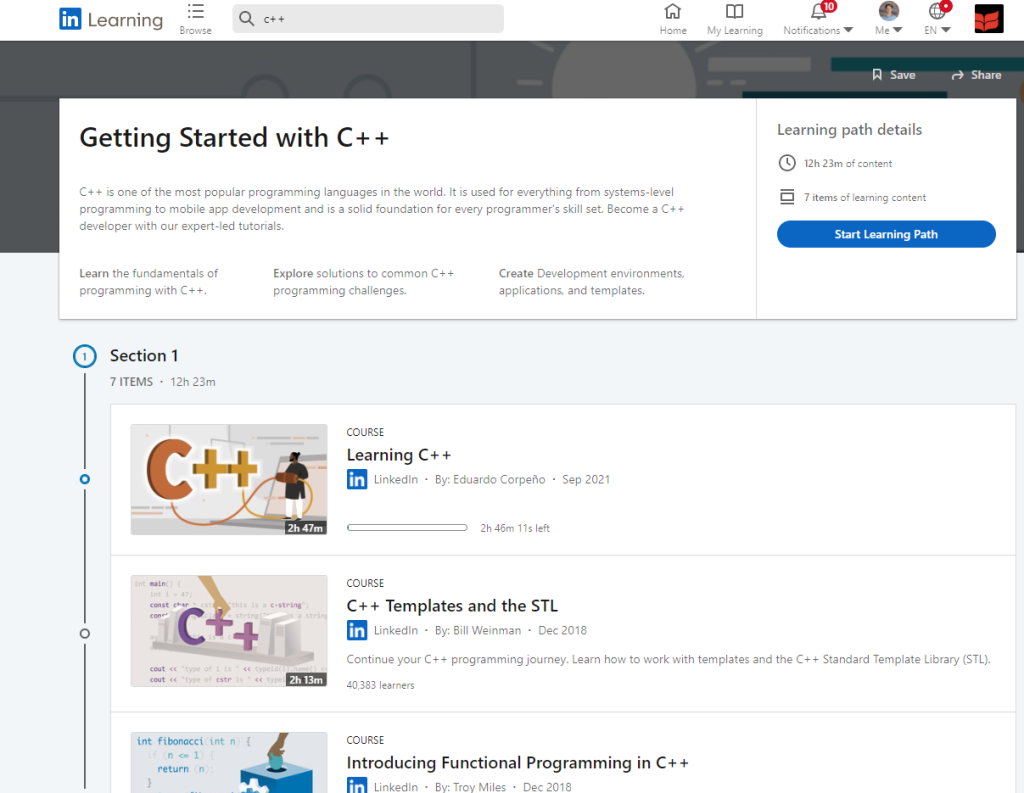
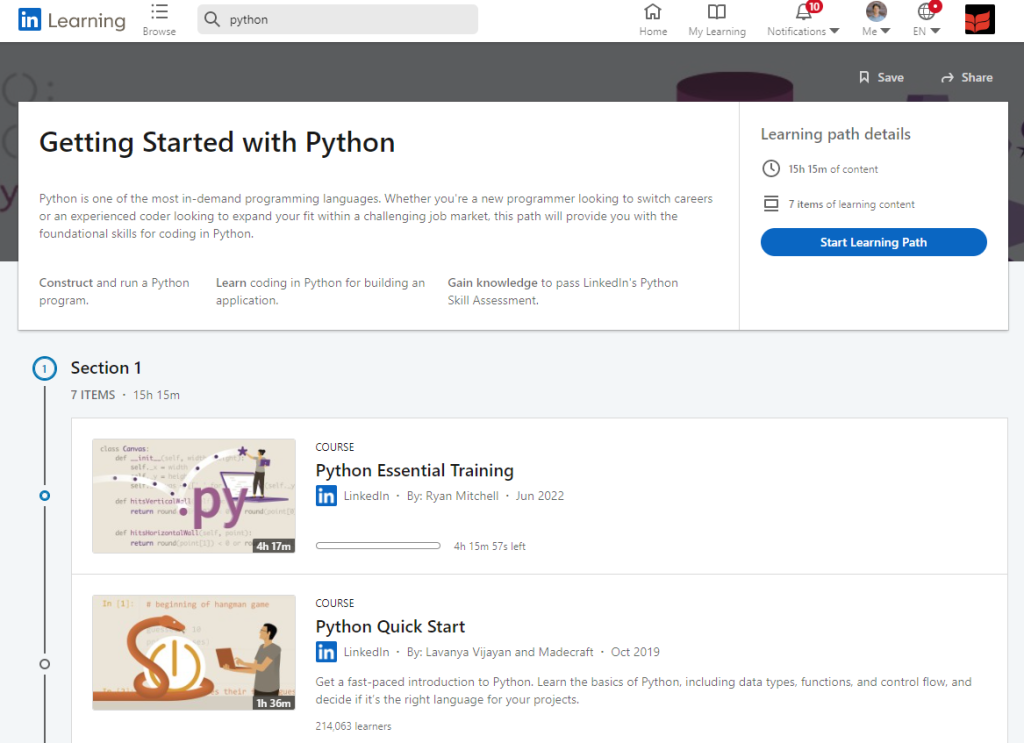
Wow! These courses have about 15 hours of learning each. That is a good amount of work but is very achievable for my month long break. I will plan to put in at least an hour of everyday of studying every day! If I don’t finish that won’t be a problem because I can just pick up where I left off in this asynchronous course later.
Now let’s see if Coursera, another online learning platform, has any available courses.
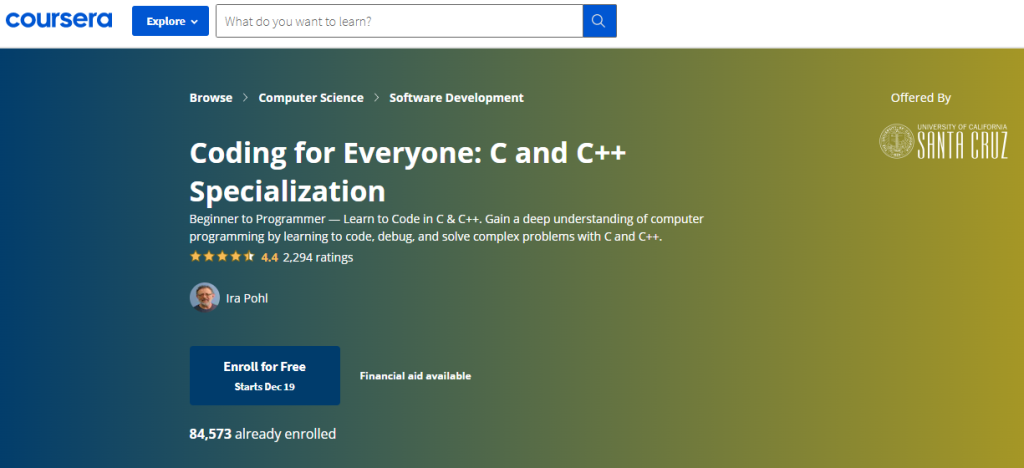
This course happens to estimate that it would take students around 50 hours to complete.
Note: Online courses sometimes cost a moderate sum of money. If you are a third or fourth-year student, you are able to apply for CLS grant funding to cover this cost. More information is available here.
Once I have finished these courses, here is how I would list these courses on my resume:
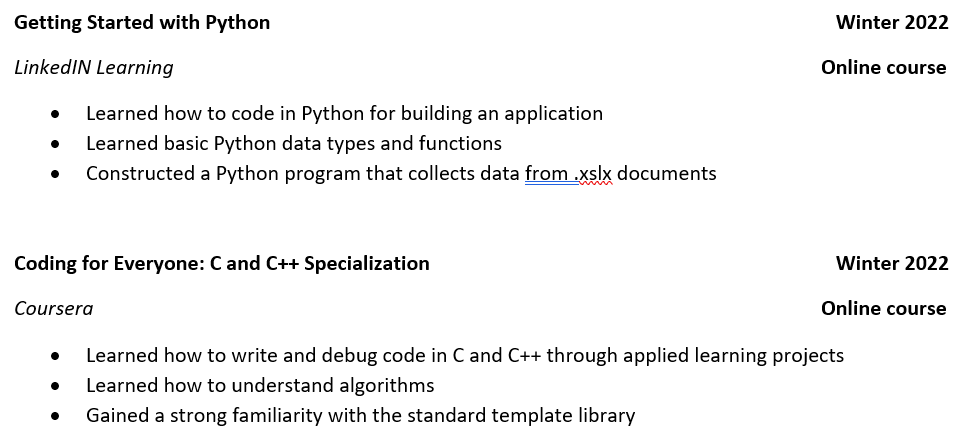
I used the course descriptions to describe what I learned and accomplished. Be clear and concise in describing the new skill you learned taking this course.
Just for the sake of comparison, let’s compare this resume listing to what I currently have:
Skills:
Python (some experience), C++ (beginner experience)
Having the certification on my resume clearly communicates my new gained skills and capacities. Wouldn’t you agree that my resume has a much stronger message?
I hope that you better understand why certifications and courses can strengthen your resume, and that you have a better idea of how to identify helpful course listings!
I have put together a few courses and certifications I have come across for varied career interests and skills. Take a look:
General STEM laboratory skills:
Here lies a slight exception to the certification route. Citizen science projects are an excellent and free way to participate in active projects which also build your scientific skillset! You would be able to list your participation in these projects as work or volunteer experience on your resume. Take a look at some active projects: https://www.citizenscience.gov/catalog/#
The CDC has put together laboratory training modules. Take a look through all the courses offered for some excellent trainings: https://www.cdc.gov/labtraining/index.html
Computer science skills:
- Introduction to Network Routing
- SQL Essential Training
- Career Essentials in Data Analysis by Microsoft and LinkedIn
Chemistry:
Biology:
Physics:
- The Finite Element Method for Problems in Physics
- Introduction to Thermodynamics: Transferring Energy from Here to There
Engineering:
Wildcards:
I hope this guide will help you get started in specializing your own skillset for your dream internships and jobs! Don’t be afraid to Google things, to ask questions, and to ask for help. All of us at the CLS are here to help you.
Is this guide missing anything? Please email me at grigorovs@grinnell.edu with your feedback.
